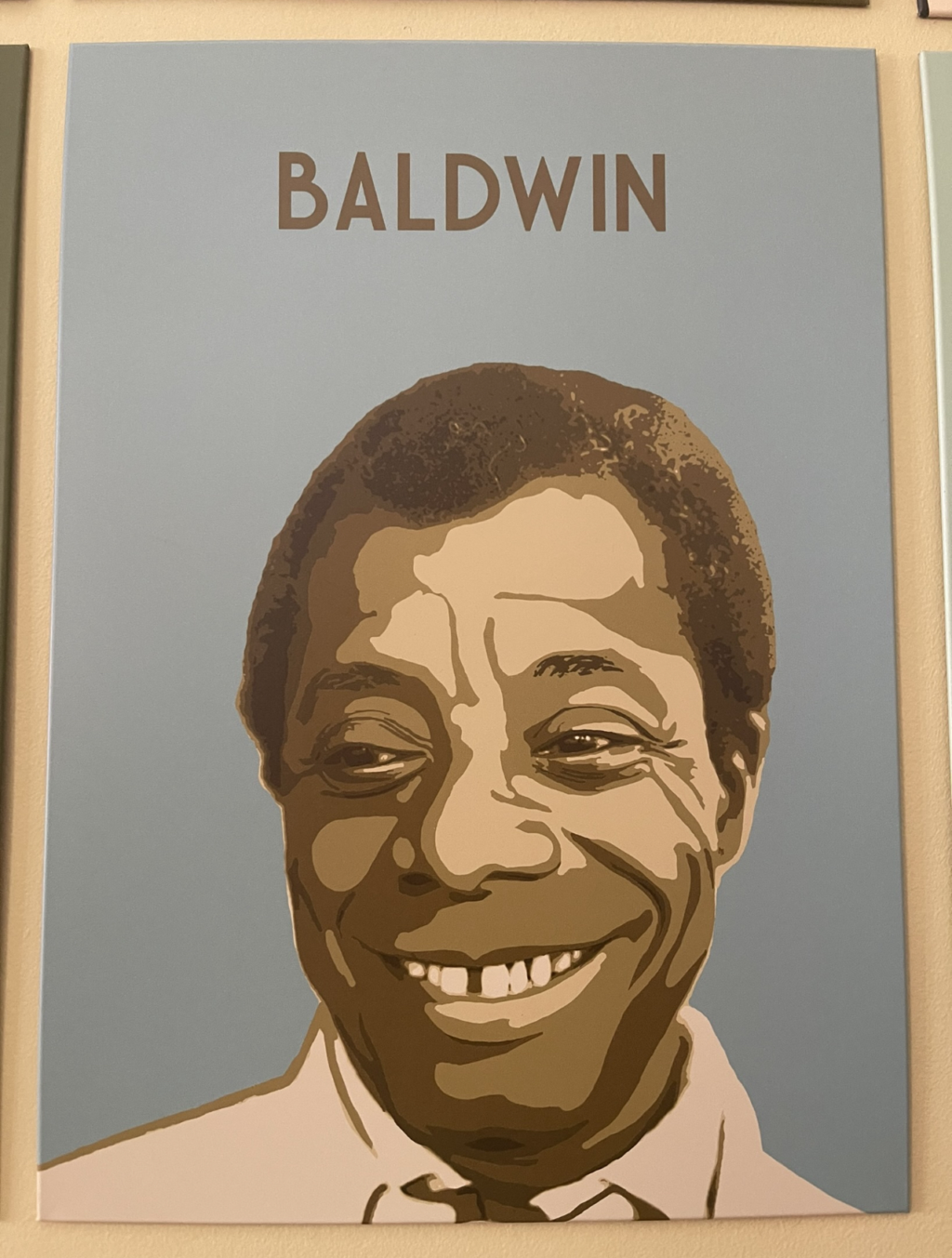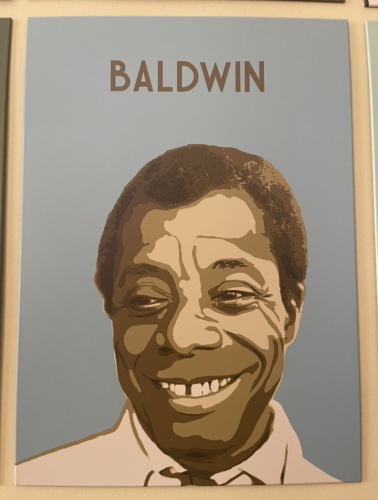
My James Baldwin Metal Plate
I have nine name plates of different writers I respect. I happened to be sitting at my desk at home, staring at the metal plates, and I realized each of the writers I admire most are dead. From W.E.B. DuBois to Toni Morrison, each writer died before I decided to pick up the keyboard. In the center of the nine, my favorite writer and arguably my favorite person to have ever lived, James Baldwin sits comfortably amongst his predecessors and successors. I’ve spent many of nights thinking about what kind of gems he would bestow had he not died before I was born. Yet I often feel like I know him personally, like he somehow finds his way into my fingertips, forcing something out of me; maybe trying to get me to see my own worth as a writer. Even as I write this post, I am staring into his gapped teeth trying to find wisdom there, maybe hoping for some epiphany about myself that I sometimes regret.
My biggest insecurity as a writer is that I am not good enough to be around those who I respect. My writing is a true reflection of who I am, but then capitalistic, and sometimes egocentric thoughts swirl around my consciousness and I feel like who I am, intrinsically, is not enough of a qualifier to determine the success of my writing. When I get into these moods, I often look back at James Baldwin and think about how he navigated through constant hurdles that tested him as a person. When he moved to Paris and started focusing on his novel Go Tell It on a Mountain, there were times when he dropped the pen, not because he didn’t have ideas for the novel, but because he had doubts about the success of the novel. Baldwin having insecurities about anything he wrote seems unimaginable. But James Baldwin wasn’t always James Baldwin. He, at one point, was at the start of his career, like me, and felt insecure about the quality of his work.
I am weary about the kinds of energies I put into the world. Thinking negative thoughts about my success as a writer, will, undoubtedly lead to failure. And when I think of failure, I do not think about it as my writing not being widely accepted and/or respected, but about my giving up writing all together. In a sense, writing would no longer be a pillar in my life as it stands today. Baldwin, at many points, gave up on writing for one reason or another, especially when it came to his first play The Amen Corner. It was never published and had been rejected many times before Baldwin decided to update the play into a novel, which became Go Tell It On A Mountain. His other novel Giovanni’s Room, heavily inspired by his off and on relationship with his lover, Lucien, was initially rejected by his publisher because it wasn’t the “Black” trope they were expecting him to write. It was Baldwin’s deep tenacity and undying love of writing that kept him going during those times of rejection.
Jimmy Baldwin, outside of my father and grandmother, has had one of the most profound impacts on me as a person, let alone as a writer. I am fascinated by his travels to Paris and to Switzerland, his numerous relationships, both platonic and romantic, but most of all, his willingness to never falter at disappointments. I personally struggle with failure, as I often attribute it to my worth. Baldwin, from what I read of him, had many moments of letdown, yet it was fuel for him as his kicked out multiple novels, short stories, essays, and poetry. He is one of the principal reasons why I decided to get an MFA in creative writing, and with my time coming to a close soon, I am reminded again through this simple mental plate of my commitment to Baldwin and to writing as my chosen craft.
Thank you, Jimmy.
